#lewis john carlino
Text
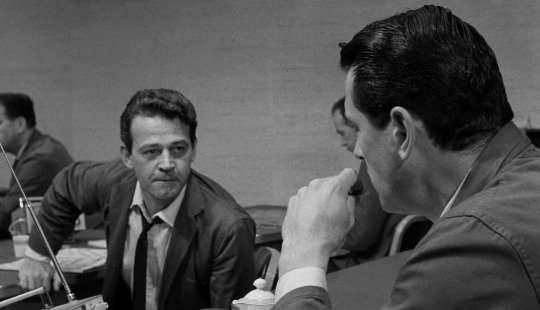
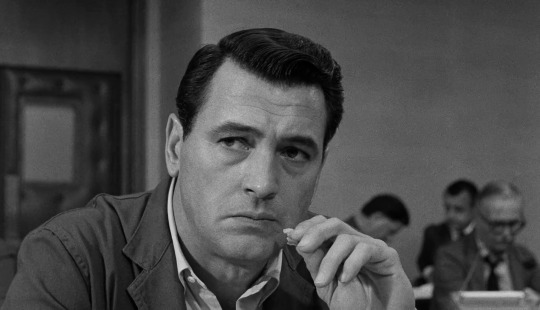
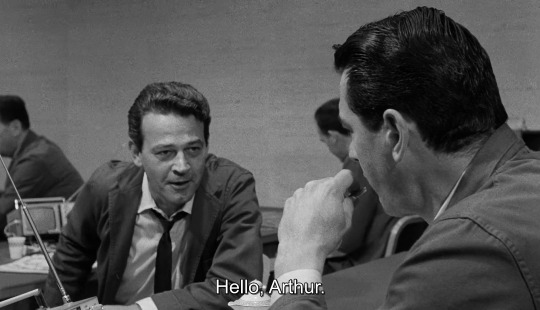
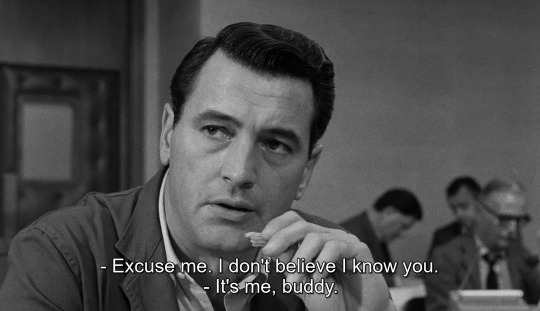


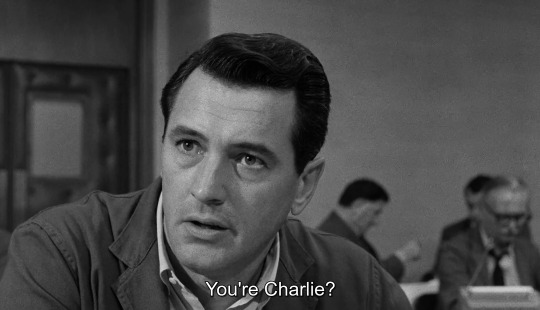

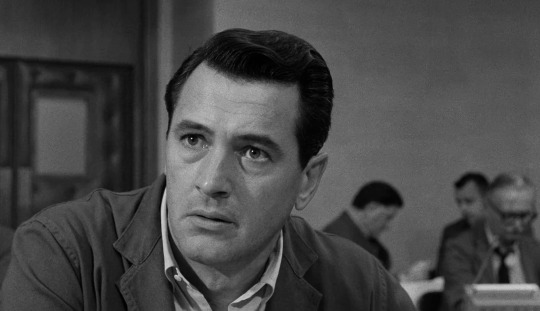

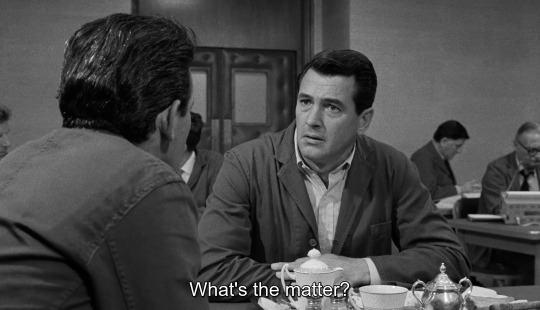

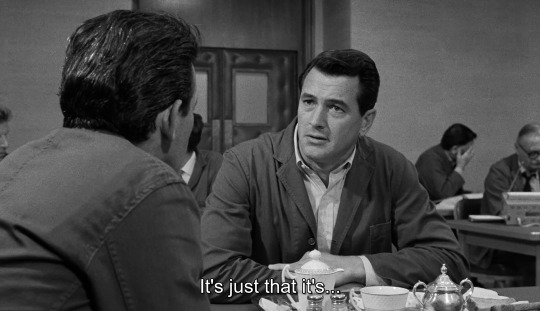
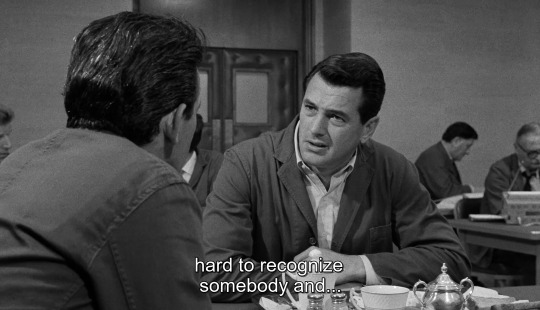
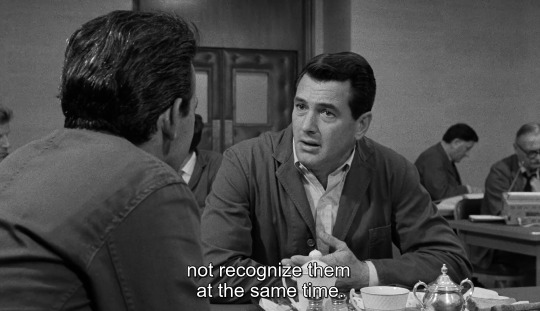
Seconds (John Frankenheimer, 1966).
#seconds#seconds (1966)#john frankenheimer#rock hudson#lewis john carlino#murray hamilton#james wong howe#ferris webster#david newhouse
103 notes
·
View notes
Text

Kris Kristofferson-Sarah Miles "Los días impuros del extranjero" (The sailor who fell from Grace with the sea) 1976, de Lewis John Carlino.
8 notes
·
View notes
Text
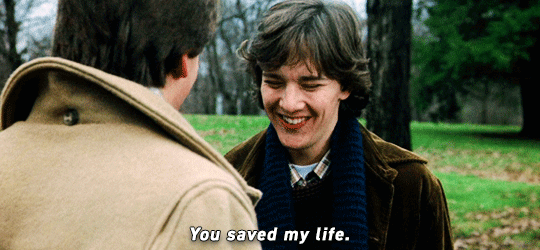
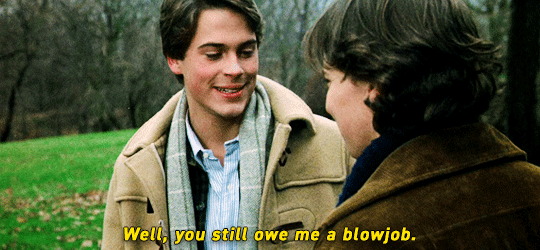
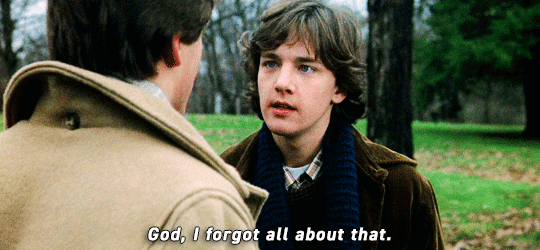
CLASS (1983)
Dir. Lewis John Carlino
#class#class 1983#andrew mccarthy#rob lowe#classedit#skip burroughs#80sedit#1980s#jonathan ogner#filmedit#moviegifs#filmgifs#filmtvcentral#filmsource#*#gifs#film#1983#kenn
126 notes
·
View notes
Link
Class, directed by Lewis John Carlino and released in 1983, is a film that blends elements of comedy, romance, and drama, set against the backdrop of an elite prep school. It stars Andrew McCarthy as Jonathan, Rob Lowe as Skip, and Jacqueline Bisset as Ellen, along with a notable supporting cast including John Cusack, Virginia Madsen, and Alan Ruck in their early roles. Watch this immediately before watching Brats on HULU, then we'll regroup later this week. What is Class?Why did I used to always confuse this movie with Teachers?Class would feel cliche as a TV series nowWhat did 1983 think of it?It's now on Blu-ray, but does it matter?Class is now available on Blu-ray. Buy it at Moviezyng! What is Class? Class follows the story of Jonathan Ogner, a naive country boy who wins a scholarship to a prestigious prep school. At school, he befriends his wealthy and charismatic roommate, Skip. Determined to help Jonathan lose his virginity, Skip sends him to Chicago, where Jonathan meets Ellen, an older woman, and they begin a passionate affair. The twist comes when Jonathan discovers that Ellen is actually Skip's mother, leading to a series of complications and emotional confrontations. Why did I used to always confuse this movie with Teachers? The film is anchored by strong performances from its leads. Andrew McCarthy portrays Jonathan with a blend of innocence and earnestness that makes his character's journey believable. Rob Lowe shines as the charming and confident Skip, whose world is turned upside down by the revelation of his mother's affair. Jacqueline Bisset delivers a nuanced performance as Ellen, bringing depth to a character who could have easily been one-dimensional. The supporting cast also deserves mention. John Cusack, in one of his earliest roles, brings a youthful energy to the film. Alan Ruck and Virginia Madsen also make memorable appearances, contributing to the film's overall appeal. Class would feel cliche as a TV series now Class attempts to navigate various themes, including the complexities of friendship, the consequences of deceit, and the challenges of young adulthood. The film oscillates between comedic and dramatic tones, which can sometimes feel uneven. The initial focus on the light-hearted pranks and camaraderie between Jonathan and Skip shifts dramatically with the revelation of Ellen's identity, leading to more serious and emotional moments. The film's exploration of social class differences is also notable. Jonathan's humble background contrasts sharply with Skip's privileged upbringing, highlighting issues of class and privilege within the elite school setting. This theme is subtly woven into the narrative, adding another layer to the film's commentary on relationships and personal growth. What did 1983 think of it? Upon its release, Class received mixed reviews. Critics praised the performances of the young cast, particularly McCarthy and Lowe, for their chemistry and charm. However, the film's uneven tone and implausible plot twists were points of criticism. Some felt that the film's transition from comedy to drama was jarring and that the story could have been more cohesive. Despite these criticisms, Class has gained a certain nostalgic charm over the years. It is often remembered for its cast, many of whom went on to achieve significant success in Hollywood. The film holds a place in the canon of 1980s teen films, though it may not be as well-regarded as some of its contemporaries. It's now on Blu-ray, but does it matter? Class is an intriguing film that captures the spirit of 1980s teen cinema while attempting to tackle more mature themes. Its strengths lie in the performances of its cast and its exploration of friendship and social class. While the film may have its flaws, it remains a noteworthy piece of its era, offering a glimpse into the early careers of several prominent actors. The A/V Quality is typical for a film of its age. However, there are no special features. Take it for what you will, but I enjoy films of the era. Class is now available on Blu-ray. Buy it at Moviezyng!
0 notes
Text
So the first thing I'm fixing is the Mechanic (1972). We are bringing John Lewis Carlino's original vision to screen.
0 notes
Text
THE GREAT SANTINI (1979) - Robert DuVall is Great in an Otherwise Okay Flick.

The following article on The Great Santini is part of Esmarelda’s Summer Seventies Series.
I’ve been taking a Directing course at UCLA on Thursday nights for the past ten weeks and about two weeks ago I found myself stranded in Los Angeles for a few hours while I waited for my class to start. I remembered a place I had stumbled into on a past adventure and decided to give it another look – that place is Mystery Pier Books, a darling little family-owned bookshop tucked away at the tail end of the Sunset Strip. The most magical and dazzling part about this little bookshop is that it holds all first editions. And I mean, walls of original print, first edition books that are older than the United States of America. You can find first edition Shakespeare in this store (understandably protected behind glass) but the prints, I believe, are from the early 1700s. I’d been in here once before (a story for another time), but I found myself in conversation with the store’s charming owner and I mentioned to him that I was about to graduate with my MFA in Screenwriting. He proclaimed that I must have read William Goldman’s “Adventures in the Screen Trade,” and I sheepishly admitted that I had not (most screenwriting programs assign you books written by people without any professionally produced credits,) so the shop owner insisted that this book was a must. I promptly went next door to Book Soup (a much more noticeable bookshop on the Sunset Strip) and bought William Goldman’s bestseller, spending my next few hours stranded in Los Angeles with my nose buried in its pages.
A section in the book discusses at length the basketball scene in “The Great Santini,” a film I had never heard of but was instantly intrigued by given the description by Mr. Goldman. On a lazy Friday night, my husband and I found it on Vudu and hit play.
Now that I’ve watched it, I get why I’ve never heard of “The Great Santini,” and if I was a more vicious and angrier critic living at the time of its release I am certain that I would have aptly titled my review of the Robert DuVall-starring film something along the lines of “The Just Okay Santini.” I don’t think I would go so far as to call this film a full-on stinker, but boy was it a disappointment. It wasn’t from the performances – DuVall and “Caddyshack’s” Michael O’Keefe (who plays the son) both received Academy Award nominations. It wasn’t from the script either, although the script had problems. But the “just okay” sentiment I gleaned from viewing the film lay solely with the picture’s director, Lewis John Carlino, who I think might go down in history as one of those very capable screenwriters who just doesn’t have the directing bone in their body.
Carlino is most known for penning the screenplay to “The Mechanic” the “great then not great then great again” assassin flick starring Charles Bronson and eternal pretty boy Jan Michael Vincent. But the narrative stumbles that come with “The Great Santini” stem from the picture’s overall identity crisis. Is it a comedy or a drama? Is it a coming-of-age story or a relationship story? Either way, the entire third act falls apart in such spectacular fashion that I found myself limping to the end. Is it Ben’s story (Michael O’Keefe) or Bull’s story (Robert DuVall)? And if the story is about both of them then a strong trouble lies with the film’s opening, as the focus is completely off Ben until we are already deep into the second act. It is quickly established that Robert DuVall’s character is a jerk and a buffoon, but he really is a boob. He's a well-known fighter pilot for the Marine Corps whose puffed-up ego is off the charts.
There isn’t much talk of his seeing battle, fighting in wars, or the kind of torment he suffered from his own father which might give a deeper understanding of his abuse towards his family. No, just an overabundance of scenes with Bull pulling crude pranks and grappling with his buddies. That is the death of this film – the crudeness. It’s hard to know what to do with someone who is crude, especially when that person is the main character driving the whole story. What should have been a great character study analyzing the relationship between a hard-lined father and the military brats in his tow spirals into a strangely manufactured coming-of-age drama with zany slapstick pratfalls thrown in at odd places? The whole film reads like a toddler struggling to say their first words – the movie knows what it wants to say, it just can’t go the distance to articulate it.
So why should you watch “The Great Santini”? For one reason and one reason only: the basketball scene. The basketball scene has all of the potential of one of those great scenes in movie history and frankly if placed in the hands of a more capable director, it should have and could have been remembered as one of those great scenes in movie history. Perhaps in the hands of a George Roy Hill or a Daniel Petrie, the film could have achieved those heights, but I can’t help but shake the feeling that Lewis John Carlino was one of those guys at a Writer’s Guild pancake breakfast who thought that he was funnier than he actually was. Even now, as I’m doing my little bits of research on Carlino while writing this article, it all becomes a little clearer now: he was a theater guy. That’s not meant to be petty or shove playwrights into a box in any way shape or form, but it just makes sense. When I’m waking up the morning after watching this totally, just okay, completely forgettable film that had all of the potential in the world, and knowing, beyond a shadow of a doubt, that the blame lies with the director, the fact that in doing my research I notice that he is and was a theater guy for a very long time just makes sense.
Because the biggest problem with this film is that it isn’t cinematic. That is apparent from the opening scene with DuVall’s Bull Meecham running dogfighting drills – the plume of black smoke that emits out of the back of the fighter planes makes my lungs hurt. The camera can never make up its mind about Bull Meecham, either. He’s a boob – he’s a dork who knows how to do push-ups. He’s overcompensating for God knows what and anyone in his path is asking to be on the receiving end of his abuse, but in the end, he’s honored as a hero in a spectacularly uninteresting fashion, nonetheless. I felt cheated of the emotional impact this might have on Ben, who weeps on his mother’s shoulder saying that he used to pray for his father’s plane to crash.
But never once did we see him pray for his father’s plane to crash. Not only that but other than his friendship with the doomed Toomer (Stan Shaw), we don’t really have any insight into Ben’s inner desires other than to play basketball. The whole film is wonky, clunky, underdelivers on an otherwise exciting premise, and ultimately proves that just because you can write a good screenplay, that doesn’t mean you can direct a strong picture.
Read the full article
0 notes
Text

Michael Winner's The Mechanic (1972) - written by Lewis John Carlino and Monte Hellman - is definitely one of the best Charles Bronson films in the 70s and it's no surprise that it was remade (poorly) with Jason Statham in 2011. A remake that had a following mind you! If you watch the original again, please notice that there is no dialogue at all in the first 16 minutes. Pure zen. And a fun trivia: Cliff Robertson was originally cast as Arthur Bishop, the titled character, with Jeff Bridges as his successor Steve McKenna, a role that ultimately went to Jan Michael Vincent.
0 notes
Text
Blu-ray review: “The Brotherhood” (1968)
“The Brotherhood” (1968)
Drama
Running Time: 96 minutes
Written by: Lewis John Carlino
Directed by: Martin Ritt
Featuring: Kirk Douglas, Alex Cord, Irene Papas and Luther Adler
Critical Commentary
“The Brotherhood” is a crime drama film directed by Martin Ritt and starring Kirk Douglas, Alex Cord, and Irene Papas. The story revolves around a young man named Frank Ginetta (Alex Cord) who…

View On WordPress
#bluray#bluray review#Kirk Douglas#Martin ritt#The Brotherhood#The Brotherhood bluray#The Brotherhood bluray review
0 notes
Photo
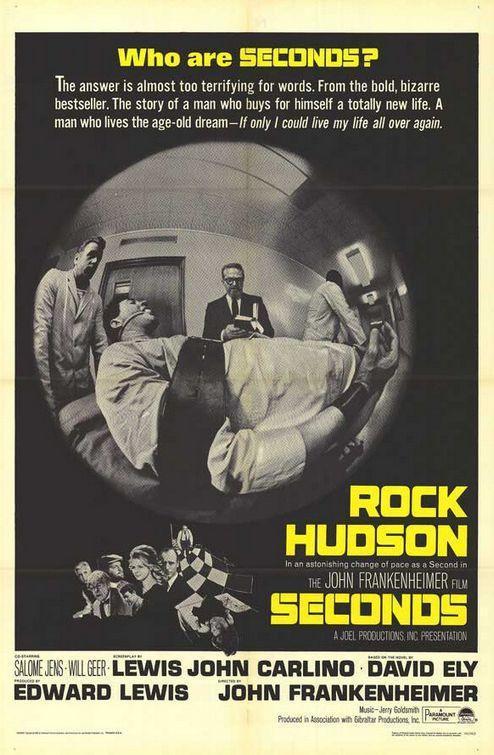
Seconds - John Frankenheimer (1966)
Poster
#seconds#john frankenheimer#cohiba 1966 price#1960s#rock hudson#poster#usa#paramount pictures#thriller#david ely#lewis john carlino#jerry goldsmith#james wong howe#john randolph#salome jens#will greer
61 notes
·
View notes
Text

Sarah Miles-Kris Kristofferson "Los días impuros del extranjero" (The sailor who fell from grace with the sea) 1976, de Lewis John Carlino.
4 notes
·
View notes
Photo






Rob Lowe and Andrew McCarthy in
Class (1983, dir. Lewis John Carlino)
#for real though these are boyfriends and i will not hear otherwise#class 1983#rob lowe#andrew mccarthy#80s#80s film#film#lewis john carlino
130 notes
·
View notes
Text

5 notes
·
View notes
Text

I Never Promised You a Rose Garden (1977). A disturbed, institutionalized 16-year-old girl struggles between fantasy and reality.
This feels like such a pre-cursor to movies like Girl, Interrupted that I think I was always going to have a bit of a soft-spot for it, haha. It's compelling, emotionally layered, and with some really nice cinematography that captures the complexity of these characters. The ebb and flow of the story makes for a nice, mellow pace, and I really just wish the script was a little bit stronger. 6.5/10.
#i never promised you a rose garden#1977#Oscars 50#Nom: Adapted Screenplay#anthony page#Joanne Greenberg#gavin lambert#Lewis John Carlino#bibi andersson#Kathleen Quinlan#ben piazza#Lorraine Gary#mental health#coming of age#america#american#6.5/10
21 notes
·
View notes
Photo









The Sailor Who Fell from Grace with the Sea | Lewis John Carlino | 1976
#Lewis John Carlino#The Sailor Who Fell from Grace with the Sea#1976#Jonathan Kahn#Sarah Miles#Kris Kristofferson
80 notes
·
View notes
Photo

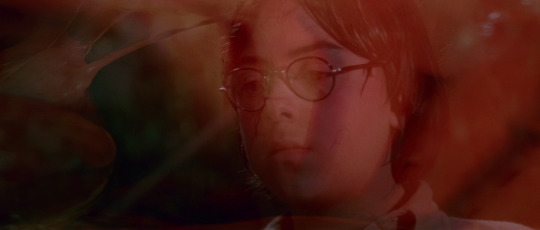

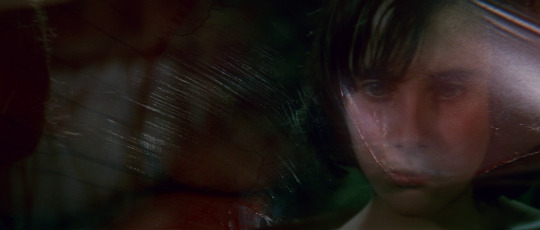

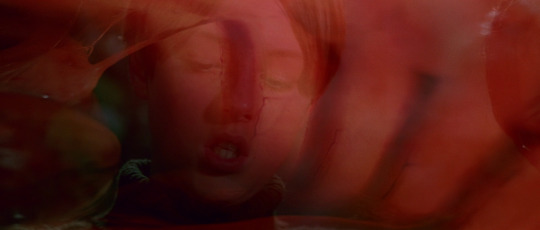

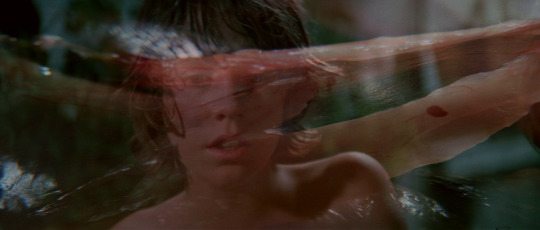
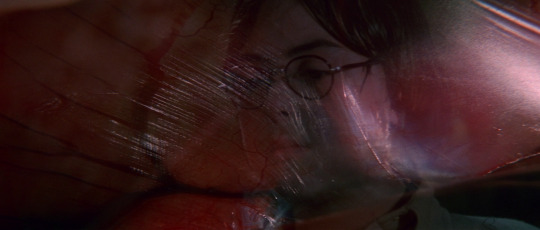

The Sailor Who Fell from Grace with the Sea (Lewis John Carlino, 1976).
#the sailor who fell from grace with the sea (1976)#the sailor who fell from grace with the sea#lewis john carlino#yukio mishima#jonathan kahn#douglas slocombe#antony gibbs#ted haworth#brian ackland-snow#lee poll
36 notes
·
View notes
Text

Quick read, better ending!
3 notes
·
View notes